As a BetterHelp affiliate, we receive compensation from BetterHelp if you purchase products or services through the links provided
Obsessive-compulsive disorder (OCD) can manifest in different ways, including the compulsion to count items or behaviors. If you’re struggling with OCD counting, know that you’re not alone, and there are strategies to help you break free from this challenging pattern.
Understanding your OCD and the triggers behind your counting compulsions is crucial to managing this condition. It’s essential to recognize the symptoms, such as heightened anxiety and stress, when unable to count or perform mental calculations. By delving deeper into the underlying causes and mechanisms, you can begin to take control of your compulsions and work towards overcoming your OCD counting.
Key Takeaways
- Identify triggers and understand the role of anxiety in OCD counting
- Explore treatment options like cognitive-behavioral therapy (CBT) and exposure and response prevention (ERP)
- Enlist the support of family, friends, and professionals when needed
 Understanding OCD and Counting
Understanding OCD and Counting
Obsessive-Compulsive Disorder (OCD) is a mental health condition characterized by intrusive thoughts and repetitive behaviors. If you’re struggling with OCD, understanding its symptoms and the role counting plays in it is an essential step towards improvement. This section will discuss the basics of OCD and counting, also known as arithmomania.
Firstly, it’s essential to know that OCD involves two primary features: obsessions and compulsions. Obsessions are persistent, unwanted thoughts or ideas that cause distress, while compulsions are repetitive, ritualistic behaviors in response to these thoughts. Obsessions can manifest in various forms, such as fear of contamination or intrusive harm-related thoughts.
Arithmomania, or counting OCD, is a specific form of OCD where individuals feel compelled to perform mental counting or engage in counting rituals. They may count objects, steps, or even the number of times they perform a particular action. Counting can provide temporary relief from anxiety, but like other forms of OCD, it only serves to reinforce the cycle of obsessions and compulsions.
Some common manifestations of counting OCD include:
- Counting objects, such as tiles on a floor or bricks in a wall
- Counting steps while walking
- Counting breaths or heartbeats
- Repeating actions a specific number of times
It’s essential to understand that there’s no shame in having OCD. Millions of people worldwide experience this condition, and support is available to help you manage and overcome your symptoms. Recognizing that counting is a coping mechanism for dealing with intrusive thoughts is crucial in finding effective treatment.
When addressing OCD counting, professional support from therapists or psychiatrists can provide a tailored experience to help break the cycle. Cognitive-behavioral therapy (CBT), Exposure and Response Prevention (ERP), and certain medications can be beneficial. Remember, you’re not alone in this journey; seeking help is a sign of strength.
Key Takeaway: OCD and counting behaviors, also known as arithmomania, involve obsessive thoughts and compulsive counting rituals. Recognizing the cause and seeking professional support can lead you to a healthier, more manageable life.
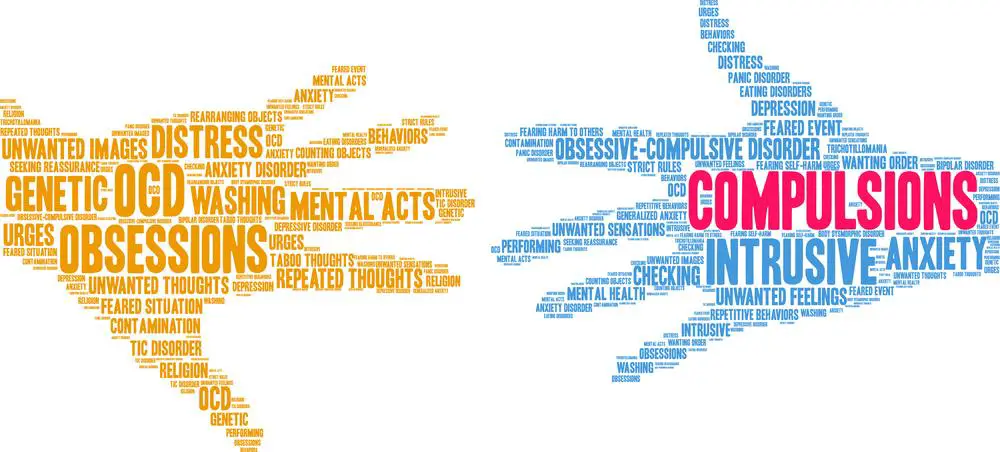
Recognizing the Symptoms
When it comes to OCD counting, it’s essential to recognize the symptoms early on so you can take action to manage and reduce its impact on your life. The first step is paying attention to your behavior.
Do you find yourself counting things repeatedly and without any rational reason? Are you experiencing intrusive and unwanted thoughts about counting? You may notice that these obsessive thoughts cause stress, anxiety, and fear. This behavior may feel uncontrollable, causing significant distress in your daily life.
Keep an eye out for the compulsions that accompany these thoughts. For example, you might need to count particular objects or actions, which may temporarily alleviate the distress caused by your obsessive thoughts. However, over time, you may notice that the relief is short-lived, and the counting behavior returns.
Here are some key takeaways to help you recognize OCD counting:
- Observable counting behavior without rational reason
- Intrusive, unwanted thoughts related to counting
- Obsessive thoughts leading to stress, anxiety, and fear
- Compulsive counting actions as a temporary relief from distress
It’s crucial to remember that experiencing one or more of these symptoms doesn’t necessarily mean you have OCD counting. Still, it is worth evaluating your mental health and seeking help if needed. The sooner you identify the issue, the better equipped you’ll be to tackle it and find the support you need to regain control of your life.
 The Role of Anxiety and Stress
The Role of Anxiety and Stress
It’s important to understand that OCD counting can be deeply intertwined with anxiety and stress. Anxiety disorders often go hand-in-hand with this condition. When stressed or anxious, your OCD counting symptoms may become more intense or frequent.
One way to manage your OCD counting is by addressing the anxiety and stress in your life. It’s essential to recognize the triggers that make you feel overwhelmed and find healthy ways to cope with them. For example, practicing mindfulness, engaging in regular physical activity, and having a solid support system can all help to reduce anxiety and stress levels, which may, in turn, help reduce your OCD counting tendencies.
Here are some tips to help you manage anxiety and stress:
- Prioritize self-care: Make sure you get enough sleep, eat well, and take breaks when needed. Taking care of your physical and emotional well-being is crucial for managing stress and anxiety.
- Meditation and deep breathing exercises can help you stay grounded and focused, allowing you to control your thoughts and emotions better.
- Engage in relaxing activities: Find hobbies or activities that bring you joy and help you unwind, such as reading, painting, or spending time in nature.
It is vital, however, not to avoid situations that trigger your anxiety altogether. Instead, try gradually exposing yourself to these triggers in a controlled and safe way. This process, known as exposure therapy, is often integral to successful OCD treatments. However, it’s essential to work with a mental health professional to undertake this approach safely and effectively.
Remember that reducing anxiety and stress levels will likely improve your overall quality of life, not just your OCD counting. By addressing these factors, you’re helping yourself manage counting tendencies and taking steps to enhance your well-being.
Underlying Triggers and Causes
Many factors can contribute to the development of OCD counting, and it’s essential to understand these potential triggers to gain better control over this condition. Let’s explore some common causes and triggers:
Genetics plays a role in OCD, as it often runs in families. You may be more susceptible if someone in your immediate family struggles with this condition.
Streptococcal infections, particularly in childhood, have been linked to OCD development in some cases. This relationship is still being studied, but it’s worth considering in understanding your OCD counting patterns.
Childhood experiences, such as abuse or neglect, can trigger OCD counting behaviors. These distressing events can lead to the need for control and stability that counting provides.
Entering young adulthood can be a stressful time with many life changes. This transition period may exacerbate OCD tendencies, leading to increased counting behaviors.
To better understand and tackle your OCD counting, consider the following tips:
- Identify your triggers: Recognize the situations or emotions that bring on counting urges, and try to address the root cause when possible.
- Build a support network: Share your struggles with close friends or family members who are understanding and empathetic. They can provide encouragement and guidance as you navigate this journey.
- Seek professional help: A mental health professional can help you develop coping strategies and may recommend medication or therapy.
Throughout your efforts to stop OCD counting, remember that understanding the underlying causes and triggers is an essential first step. Be patient with yourself as you work towards managing this condition, and know that progress may be gradual – but with perseverance, you’ll find relief.
 Treatment Strategies: Therapy and Medication
Treatment Strategies: Therapy and Medication
When dealing with OCD counting, exploring effective treatment options is crucial. Here, we’ll discuss some strategies involving therapy and medication. Remember that healing takes time and effort, so be patient and trust the process.
The first step in overcoming OCD counting is seeking the help of a mental health professional. They can guide you through various forms of therapy tailored to your needs. Exposure and Response Prevention (ERP) is an effective method that helps you confront obsessive thoughts without engaging in compulsive behaviors. You’ll gradually learn to cope by repeatedly facing these fears and eventually free yourself from the counting compulsions.
Another therapeutic approach to consider is psychotherapy. It involves talking to a trained therapist better to understand your thoughts, feelings, and behaviors. This process allows you to gain insight into your OCD and develop effective coping mechanisms. Remember, the key to successful therapy is open communication and trust with your therapist.
A mental health professional might recommend medication as part of your treatment plan when appropriate. Commonly prescribed medications for OCD include antidepressants, specifically Selective Serotonin Reuptake Inhibitors (SSRIs). These medicines can help alleviate some of the symptoms associated with OCD counting, making it easier to concentrate on therapeutic interventions.
Here are some key points to remember in your journey to overcome OCD counting:
- Seek help from a mental health professional
- Exposure and Response Prevention (ERP) may be an effective form of therapy
- Psychotherapy can provide valuable insights and coping mechanisms
- Medication, such as SSRIs, may be recommended as part of the treatment plan
Always consult with your mental health professional to determine the best course of action for your situation. Remember to be patient, committed, and open to different treatment strategies. With persistence and professional guidance, you can gain control over your OCD counting and improve your quality of life.
 CBT and ERP: A Closer Look
CBT and ERP: A Closer Look
When dealing with OCD counting, Cognitive Behavioral Therapy (CBT) and Exposure and Response Prevention (ERP) can be effective treatment methods. Both approaches help you overcome your compulsions by encouraging you to face your fears and change your thought patterns.
CBT focuses on helping you identify and challenge your unhelpful thoughts and beliefs. Doing so can replace them with healthier, more adaptive thoughts. For example, suppose you believe that counting is necessary to prevent harm. In that case, CBT will help you recognize the irrationality of this belief and provide you with alternative, less anxiety-provoking beliefs.
In contrast, ERP is a specific CBT form that directly confronts your compulsions. For instance, if you feel the urge to count, you’ll be encouraged to resist it while exposing yourself to the anxiety-inducing situation. This may be difficult at first, but over time, you’ll see that the feared outcome doesn’t occur, helping you build confidence in your ability to resist the urge to count.
Here are some mental strategies that can support your CBT and ERP treatment:
- Mindfulness: Practice being present and non-judgmental in your thoughts and feelings. This can help you remain objective when faced with your compulsions.
- Distraction: Find healthy activities that can shift your focus from counting, such as exercise, hobbies, or socializing.
- Positive reinforcement: Congratulate yourself for every small victory in resisting your compulsions. This builds self-esteem and encourages continued progress.
- Breathing exercises: When anxious, utilize deep, slow breaths to calm your mind and body.
In conclusion, both CBT and ERP offer effective mental strategies for combating OCD counting. By combining these techniques with a friendly, empathetic, and experienced therapist, you can ultimately gain control over your compulsions and improve your quality of life. Remember to be patient with yourself—it’s a journey worth taking.
 Lifestyle Changes and Support
Lifestyle Changes and Support
Exercising regularly can have a positive impact on your mental health. By incorporating physical activities into your daily routine, you may benefit from improved overall health and a clearer, more focused mind. You might find group exercises like yoga or pilates particularly helpful, as they often involve mindfulness, which can be essential in managing OCD counting thoughts.
Mindfulness encourages individuals to stay in the present moment, so practicing mindful exercises like meditation or deep breathing can also be a tremendous asset in managing your OCD symptoms. Remember, consistency is critical; therefore, try to set aside some time each day for mindfulness practices, even if it’s just for a few minutes.
Finding a support group or connecting with others with OCD counting issues can significantly impact your journey. Sharing experiences, exchanging advice, and knowing that you’re not alone in your struggles can be reassuring and motivating. Look for local meetups or online forums to connect with people who understand what you’re going through.
Don’t underestimate your family members’ role in supporting you through this process. It’s essential to keep an open line of communication with your loved ones, as they can provide the understanding and reassurance you need during challenging moments. Encourage your family members to educate themselves about OCD to support you better.
Lastly, it’s important to remind yourself that there’s no one-size-fits-all solution for managing OCD counting. Be patient, and allow yourself to experiment with different strategies and determine what works best for you. As you implement various lifestyle changes and lean on your support network, you will be better equipped to take control of your life and overcome OCD counting thoughts.
 Dealing with Compulsions
Dealing with Compulsions
Dealing with compulsive behaviors like checking, washing, arranging, and mental compulsions can be challenging, but reducing their impact on your life is possible. Here are some strategies to help you manage your OCD counting compulsions:
1. Recognize the triggers: Acknowledge what situations or thoughts provoke your compulsive rituals. You can start developing coping strategies to handle these triggers effectively by identifying them.
2. Create a hierarchy of fears: List your compulsions from the least distressing to the most distressing. This hierarchy will help you gradually face your compulsions, starting with the easiest ones and moving on to the more challenging ones as you build resilience.
3. Set achievable goals: Break down your goal of stopping OCD counting into smaller, manageable steps. Focus on making progress rather than expecting perfection.
4. Implement exposure and response prevention (ERP): ERP is a therapy technique that exposes yourself to the triggers of your compulsions while resisting the urge to engage in compulsive behavior. With practice, your anxiety related to triggers should decrease.
5. Embrace uncertainty: Accept the uncertain nature of life and work on letting go of the need for control. It’s essential to remind yourself that nothing is entirely under our control, and that’s okay.
6. Seek professional help: If you’re struggling with your compulsions, don’t hesitate to contact a therapist specializing in treating OCD. They can provide guidance, support, and effective treatment methods.
Remember, overcoming compulsive counting takes time and patience. You’ll gradually regain control over your thoughts and behaviors by breaking your goals into smaller steps and seeking professional help when needed. Good luck on your journey!
Overcoming Fears and Doubts
It’s natural to feel fear, doubt, and uncertainty when dealing with OCD counting. However, you can gain control and overcome your compulsive urges by facing these emotions head-on.
First, acknowledge your fears by taking a moment to list them. This might include fears of specific situations or numbers or more abstract concerns about your mental health. You take the power away from your fears by identifying and validating them.
Next, challenge your doubts by questioning the validity of your beliefs. For example, if you fear not counting will lead to some catastrophe, recognize this is likely an irrational belief. Actively dispute these thoughts and remember to trust in your abilities to handle any situation.
Some strategies to help you face your fears and doubts include:
- Practicing mindfulness meditation helps you stay present and reduce anxiety.
- Creating and adhering to a structured daily routine.
- Participating in physical exercise to release tension and boost your mood.
- Engaging in activities you enjoy, such as hobbies, social events, or creative pursuits.
- Seeking professional help, such as therapy or support groups, to learn more effective coping strategies.
Remember, it’s essential to be patient with yourself during this process. Change doesn’t happen overnight, and it’s okay if sometimes your fears and urges feel overwhelming. In these moments, take a step back, breathe deeply, and remind yourself that you’re on the path to overcoming your OCD counting.
As a key takeaway, confronting and challenging your fears, doubts, and uncertainties is essential in overcoming OCD counting. You can gradually regain control of your life by employing these strategies and maintaining a positive mindset.
Role of Family and Friends
You must involve your family and friends in your journey to stop OCD counting. Their support can make a significant difference in overcoming this condition. Keep reading to learn how they can help you along the way.
Be Open and Honest
Share your struggles with your loved ones, as they can’t help you without understanding your challenges. Discuss your OCD counting habits and how they impact your life. When they know what you’re going through, they can provide you with the support and guidance needed.
Establish a Support Network
Having a solid support network is crucial in overcoming OCD counting. This can include family members, friends, or even joining a support group. Connect with people who understand your journey and can offer valuable advice. Sharing experiences and learning from others in similar situations can help you stay on track and persevere.
- Family Members: Keep your family in the loop and ask for their support and understanding.
- Support Group: Seek out local or online support groups catering to individuals with OCD, where you can share experiences and learn from others.
- Reassurance from Friends: Your friends can provide much-needed reassurance and encouragement during challenging times.
Create a Safe and Supportive Environment
A conducive environment plays a vital role in overcoming OCD counting habits. Work with your family and friends to ensure your surroundings are supportive and positive. Encourage them to avoid being judgmental or critical, which can counteract your progress. Instead, they should offer reassurance, understanding, and patience.
- Set Boundaries: Establish rules and boundaries with your loved ones regarding their reactions and responses to your OCD counting habits.
- Promote Positivity: Encourage your support network to maintain a positive approach and focus on your progress rather than setbacks.
- Celebrate Milestones: Recognize and celebrate your achievements, no matter how small they may seem.
Remember, your journey to stop OCD counting will be much smoother with the help of your family and friends. Keep them informed and involved, and lean on their support and understanding to overcome your condition.

When to Seek Professional Help
Obsessive-compulsive disorder (OCD) counting can be a difficult habit to break on your own. If your counting rituals are causing you significant distress or affecting your daily life, seeking professional help is essential. A mental health professional, like a therapist or psychiatrist, can provide guidance and support as you work toward overcoming your OCD.
Setting Goals for Your OCD
The first step in seeking professional help is setting clear goals for your recovery. Discuss your symptoms and signs of counting rituals with your mental health professional. Together, you can establish realistic and achievable objectives that will help you regain control over your life. Some goals might include:
- Reducing the frequency of counting rituals
- Minimizing the impact of counting on your daily routine
- Improving your overall mental well-being
Remember that progress may be gradual, so be patient and compassionate with yourself throughout your journey.
Recognizing Progress In Managing Your OCD
As you work with your mental health professional, it’s vital to acknowledge and celebrate the progress you make in managing your OCD counting. This could involve:
- Tracking the frequency and intensity of your counting rituals
- Developing a reward system for meeting your goals
- Sharing your successes with trusted friends or loved ones
Recognizing your achievements will reinforce positive behaviors and strengthen your resolve to continue improving. Remember that setbacks may occur, but don’t let them discourage you. Instead, view them as opportunities for learning and growth.
In conclusion, reaching out to a professional when your counting rituals become overwhelming is essential in overcoming OCD. By setting goals, recognizing your progress, and staying committed to your recovery, you can regain control over your life and enjoy greater well-being.
Frequently Asked Questions

How can I find relief from constant counting?
To find relief from constant counting, try these strategies:
- Mindfulness exercises: Practice focusing on the present moment to distance yourself from the counting.
- Deep breathing: Take slow, deep breaths to help calm your mind and body.
- Divert attention: Engage in activities you enjoy to take your mind off the counting.
- Set limits: Set a specific time or situation when you allow yourself to count and resist the urge outside those parameters.
- Professional help: Consider seeking therapy or counseling to work on coping mechanisms and address the root cause of your OCD counting.
Remember, progress might be slow, but keep practicing these techniques; you should see improvement over time.
What are the most effective treatments for counting OCD?
The most effective treatments for counting OCD include:
- Cognitive-behavioral therapy (CBT): A structured therapy that helps you identify and change irrational thought patterns and behaviors.
- Exposure and response prevention (ERP): A type of CBT where you’re exposed to the triggers of your OCD without allowing yourself to engage in the counting.
- Medication: Selective serotonin reuptake inhibitors (SSRIs) are often prescribed to help reduce OCD symptoms.
A combination of therapy and medication is often the most effective approach. Consult a mental health professional to discuss the best treatment options for your situation.
What factors contribute to the development of OCD counting?
Factors that may contribute to the development of OCD counting include:
- Genetics: A family history of OCD might increase your risk of developing the condition.
- Brain structure: Differences in specific brain regions and neurotransmitters have been linked to OCD.
- Life events: Stressful or traumatic events may trigger the onset of OCD counting behavior.
However, it’s important to note that the exact causes of OCD are still not completely understood and may vary from person to person.
Is there a complete cure for counting OCD?
While there may not be a one-size-fits-all “cure” for counting OCD, many people find significant relief and improvement in their symptoms through treatment. A combination of therapy, medication, and self-help strategies can help you better manage your OCD and lead a more fulfilling life.
Can OCD counting be classified as a disability?
In some cases, severe OCD counting can be considered a disability. This depends on how much it interferes with your daily life and ability to function. If you believe your OCD counting has become disabling, it’s essential to seek professional help to discuss available treatment options and potential disability benefits.
What are some helpful coping mechanisms for managing OCD?
Some helpful coping mechanisms for managing OCD include:
- Practicing relaxation techniques like deep breathing and progressive muscle relaxation.
- We are developing a support network of friends, family, and mental health professionals.
- Staying physically active helps improve overall mental health and well-being.
- Creating a structured daily routine to help maintain a sense of control.
- Participating in self-help groups or online forums to share experiences and learn from others.
Implementing these strategies in your daily life can help you better manage your OCD counting and improve your overall mental health.
About Jacob Maslow
After surviving the traumatizing events of 9/11, I took it upon myself to heal through helping others. I’m the primary caregiver of my children and understand from first-hand experience the lonely paths you have to walk as a partner and parent when leaving an unhealthy relationship.
We’re all echoing in a dark space that doesn’t have to be this empty, and that’s been my mission since finding solace and recovery in therapy: To help comfort others who are still in shock and at the prime of their struggle.
I came across BetterHelp after searching for this type of community. I wanted to belong to a body of proactive therapists and supportive therapy veterans that allowed me to see other sides of the story.
It was unconventional, and that’s what attracted me most. During my most challenging times, when my ex-wife completely cut me off from my children, I found comfort and clarity through BetterHelp.
Instead of being chained to a strict therapist recommendation, I was in charge of who I felt understood my struggle most. That allowed me to find my true peace, as I was reunited with those who read behind my words and had first-hand experience with my trauma.
Recovery is a choice; with BetterHelp, that choice will be a few clicks away. You can join their couples-oriented platform, Regain.us, for those stuck with family estrangement and toxic relationship patterns.
- Breaking the Silence: Why Men’s Mental Health Matters More Than Ever - April 15, 2025
- How to Transform a Home’s Patio Space into a Relaxing Space - March 23, 2025
- 5 Strategies to Use a Cell Phone to Help Manage Your Stress - March 23, 2025
This site contains affiliate links to products. We will receive a commission for purchases made through these links.


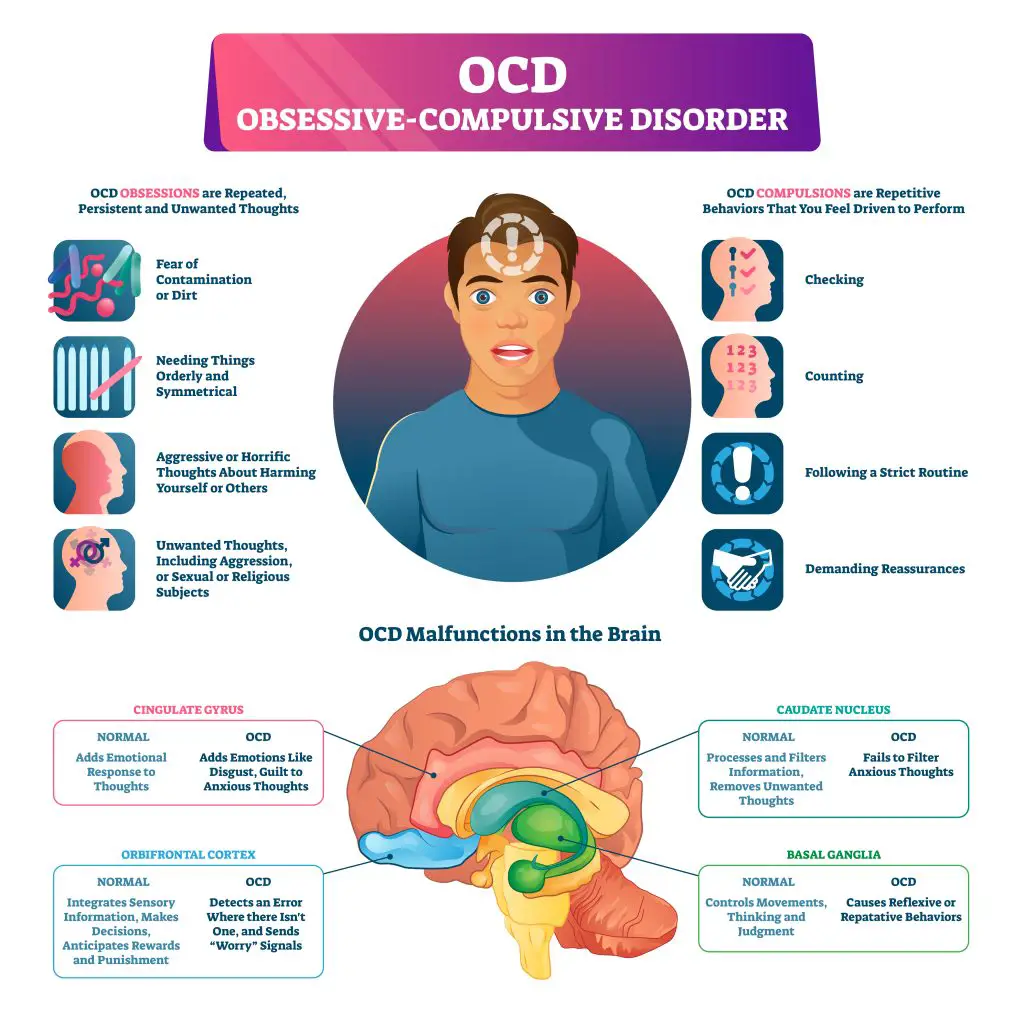 Understanding OCD and Counting
Understanding OCD and Counting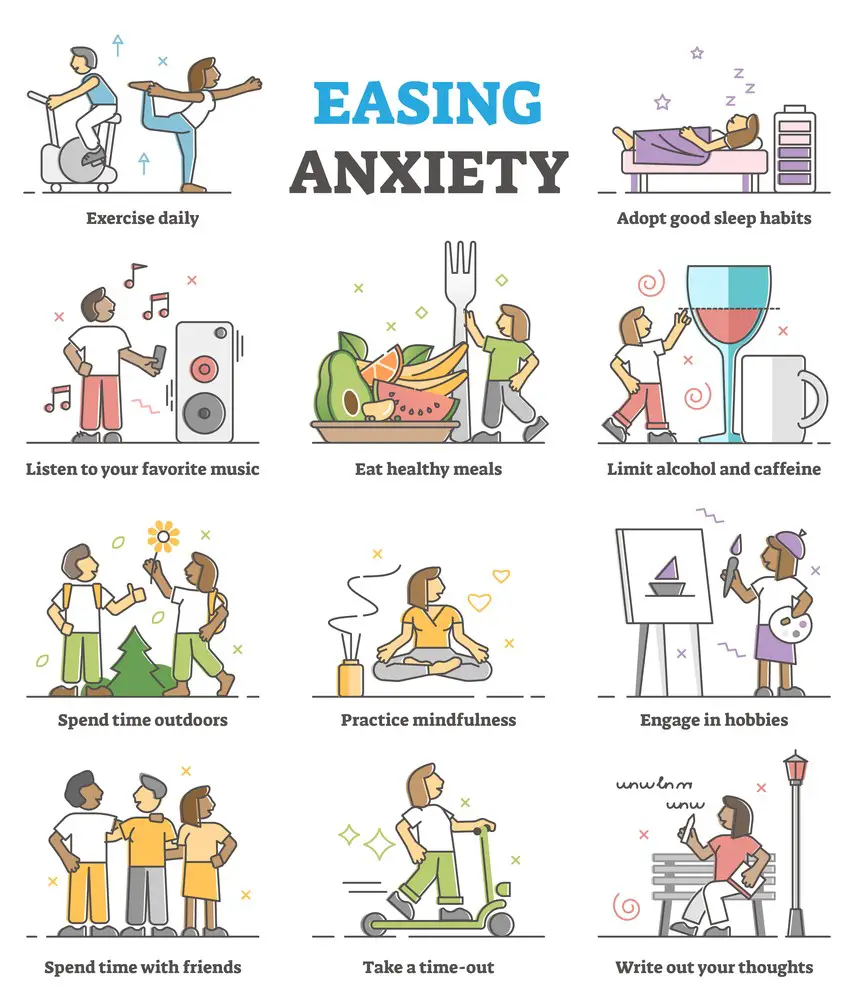 The Role of Anxiety and Stress
The Role of Anxiety and Stress Treatment Strategies: Therapy and Medication
Treatment Strategies: Therapy and Medication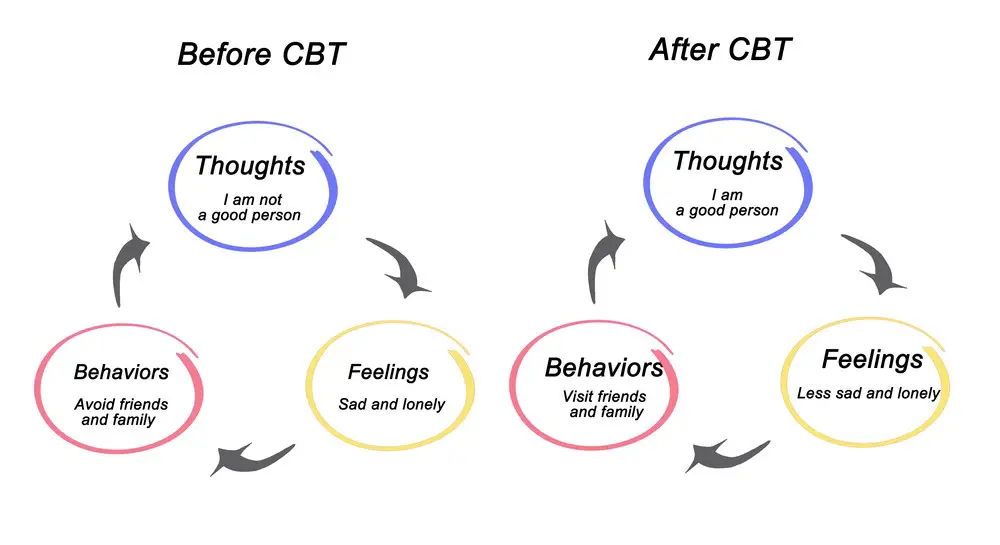 CBT and ERP: A Closer Look
CBT and ERP: A Closer Look Lifestyle Changes and Support
Lifestyle Changes and Support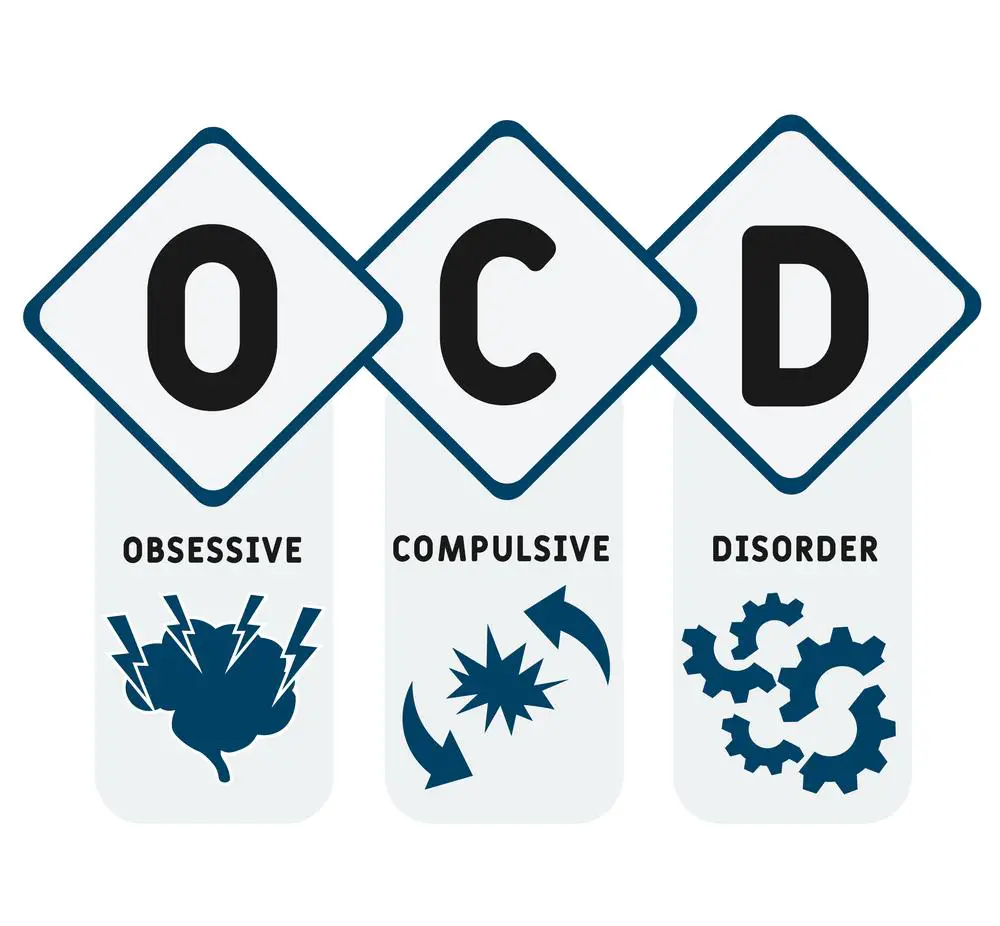 Dealing with Compulsions
Dealing with Compulsions
